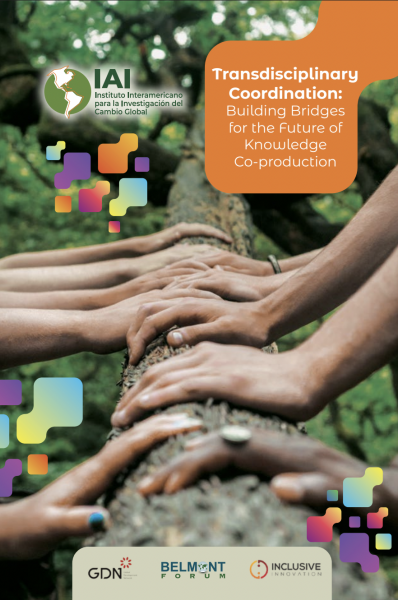The 70-30 Question - Who Will Fund The Research We Need?

Written by Francesco Obino, Director of Research and Programmes at GDN
In a panel I moderated at the Sustainability Research and Innovation Congress in Chicago this week, one panelist estimated the ratio of effort that goes into engaging meaningfully with people other than researchers in a transdisciplinary research project at 70%. The remaining 30% one could consider ‘pure’ research activities, that is to put it simply, activities that only involve researchers. A few minutes later, he corrected himself: even that 30%, he qualified, would not have been possible without that ‘everything else’ that he subsumed in the 70%. Another panelist in the same discussion refused to answer the question by stating that everything else, she argued, is research too. The speakers were Gaston Kremer, ED of World Transforming Technologies, and Margarita Gomez, ED of SouthernVoice. They were talking about projects such as linking ancestral knowledge of smallholder farmers with agroecology innovation in Brazil, or tracking SDG implementation.
Most research donors, though, would disagree. Even if they agreed in principle (which they do), many of them would still not be able to fund that 70%. Those who can struggle to meet the needs of researchers. The mainstream notion of excellent research, which, for most donors, is by mandate the only research deserving funding, rarely includes the quality of collaboration or its costs in fundable proposals. Their hands are tied, many donor representatives admit during coffee breaks at conferences. The question then remains: who pays for that 70% that the research community is increasingly considering essential?
Sustainability research, a research landscape traditionally the turf of natural, biological and ecological sciences, has been grappling for a few years already with what it means to work more with humans within the study of ecosystems, with the built environment, with complex policy regulation and man-made change in global climate. Faced with an unprecedented ecological crisis, researchers, much like research donors, are under pressure to show the impact of their work on global environmental change. As a result, the field of sustainability research is having its own reflexive turn and quickly catching up with debates that have ravaged the social sciences since the 1970s, and that gave rise, for example, to the porous field of scientific inquiry of development studies.
As a matter of fact, the cost of making research more collaborative is subsidised massively by the researchers’ collaborators themselves: ‘respondents’, ‘stakeholders’, ‘informants’, whenever not simply research ‘subjects’, typically give their time for free to science, helping researchers answer questions that they find more or less relevant. This raises a fundamental question of equity, needless to say, one which the development crowd has been hotly debating (a previous piece by me here and here is a very relevant initiative). Accepting that all that extra work is not only useful but essential, however, uncovers another side of the story: without sufficient funding for coordination, transdisciplinary research struggles to achieve the depth and quality it requires. Saying that 100% of research depends also on non-research activities is equivalent to challenging established ideas of what research is, and what makes its quality.
The 70/30 ratio struck me because it (very roughly) matches the portion of resources GDN puts into its research programmes, compared to the portion going directly towards research grants. The rough 70% (though often 60% or 50%) corresponds to activities such as mentoring, in-person meetings between researchers, networking opportunities, conferences, research communications support, outreach efforts, and close management support. That 70/30 ratio is what enabled many early career researchers to turn their GDN grant into a launchpad for international careers in development research and in development policy.
This is why GDN, the Belmont Forum, the Inter-American Institute for Global Change Research and Inclusive Innovation have been working together to build a case for funding collaboration in transdisciplinary research, as a condition for funding research in this space. This is a case for funding that 70%, and the professionals that can ensure that that 70% is not only done, but done as best and as equitably as a team can. One thing is to know that the environmental challenges we are facing are unprecedented, and recognise that addressing them will require an altogether different way to conceptualise, fund, do, communicate and use research. Another is to know how to do that. The report that was launched at the Sustainability Research and Innovation Congress 2025 is one brave step by some key actors in sustainability science in this direction. It is also a bridge between sustainability science and development research.
All hands on deck.
CHECK OUT THE REPORT






